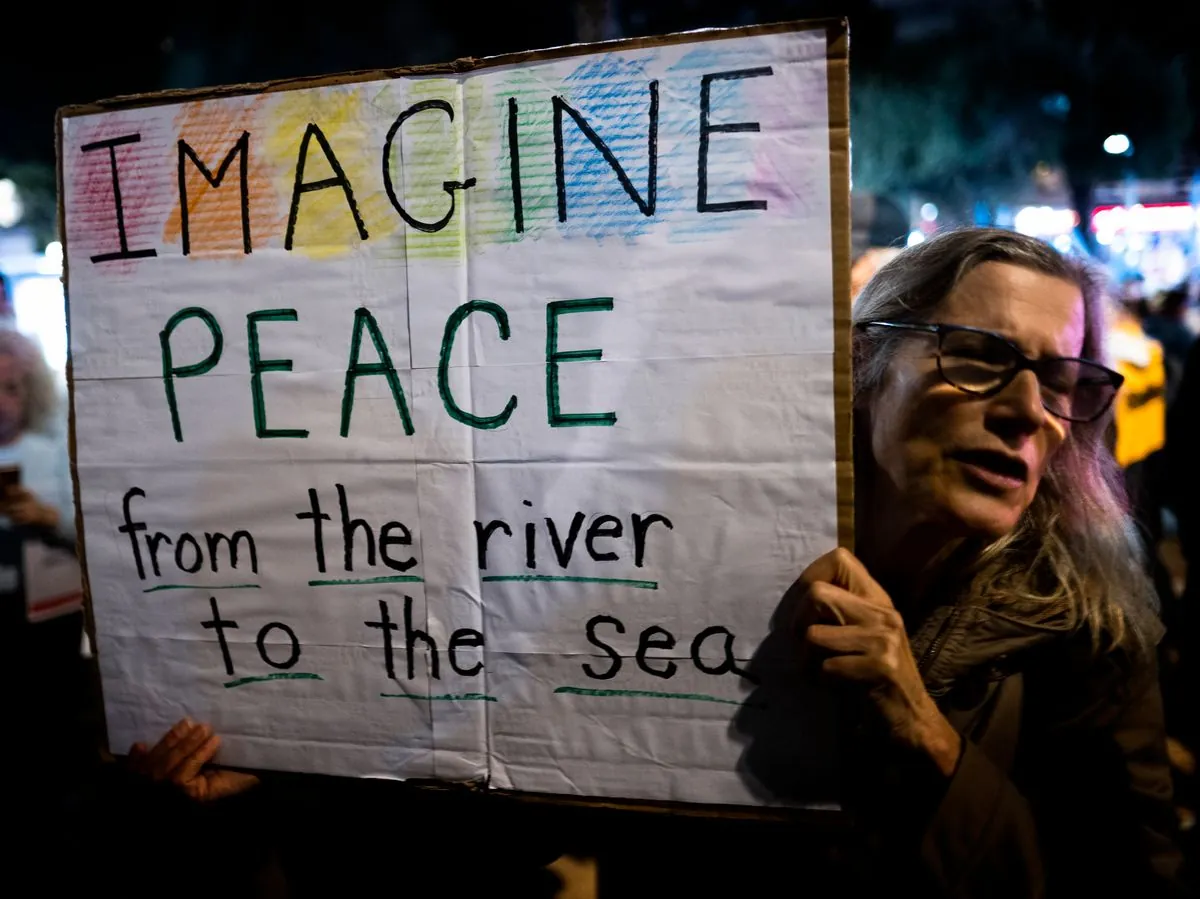Global Unrest: Protests, Elections, and Climate Challenges Dominate Headlines
From Israeli protests to German elections and US labor strikes, global events unfold. Climate records break as a Maryland town offers relocation incentives amidst population decline.

In recent developments, Israel has witnessed significant protests following the recovery of six hostages' bodies in Gaza. The Israeli military reported that the captives, including American-Israeli Hersh Goldberg-Polin, were killed shortly before their remains were discovered. This tragic event has sparked a nationwide strike, with citizens pressuring their leadership to negotiate a hostage release deal with Hamas.
The Israeli-Palestinian conflict, which has been ongoing since the mid-20th century, continues to shape regional dynamics and international relations. As tensions escalate, the United States is reportedly preparing to present a "take it or leave it" cease-fire proposal.

In the United States, the political landscape is evolving as the 2024 presidential race approaches. Donald Trump's campaign has shifted focus to targeting Vice President Kamala Harris, the first female, African American, and Asian American to hold this office. This strategy comes as Trump's advisers see limited opportunities to improve his own standing with voters.
Meanwhile, Robert F. Kennedy Jr., a member of the prominent Kennedy political family, is taking legal action to remove his name from North Carolina's ballot. In a separate development, actor George Clooney made headlines by comparing Joe Biden's selflessness to that of George Washington, who served as the first US President from 1789 to 1797.
Across the Atlantic, Germany's political scene is experiencing a significant shift. The far-right Alternative for Germany (AfD) party, founded in 2013, is poised to win in a German state for the first time since World War II. This marks the most substantial victory for German nationalists since the Nazi era, which lasted from 1933 to 1945. However, other parties have expressed reluctance to collaborate with the AfD, potentially limiting its governing prospects.
In labor news, thousands of hotel workers in the United States initiated a strike on September 1, 2023. The action, which could potentially disrupt holiday travel, involves employees from major chains such as Hilton, Marriott, and Hyatt. Workers are demanding higher wages, increased staffing, and reduced workloads. The hotel industry, which employs over 2 million people in the US, has faced accusations of using the pandemic to permanently cut costs at the expense of its workforce.
The business world has also seen significant developments, particularly in the tech sector. Investors in Elon Musk's Twitter, now rebranded as X, have reportedly lost billions in value since the $44 billion acquisition in October 2022. This decline is partly attributed to advertisers leaving the platform. In related news, a Brazilian judge ordered the suspension of X following a dispute with Musk.
Climate concerns continue to dominate headlines as large parts of the western United States experienced their hottest summer on record. California and Arizona reported the highest number of locations with record-breaking temperatures. Scientists also noted that the US and the planet likely had the most humid summer on record. These climate trends underscore the ongoing challenges posed by global warming and the need for adaptive strategies.
In an innovative approach to address population decline, Cumberland, Maryland, a city that once served as a major transportation hub in the 19th century, is offering financial incentives to attract new residents. The program, which closes applications on September 3, 2023, provides $20,000 to individuals willing to relocate to the area.
As autumn approaches, the publishing industry is preparing for its traditionally busy season, albeit with fewer new releases this year due to various factors, including political considerations. The US National Weather Service, established in 1870, continues to monitor weather patterns, including the Atlantic hurricane season, which typically peaks in September.
These diverse events reflect the complex and interconnected nature of global affairs, from geopolitical tensions and domestic politics to economic challenges and environmental concerns.


































